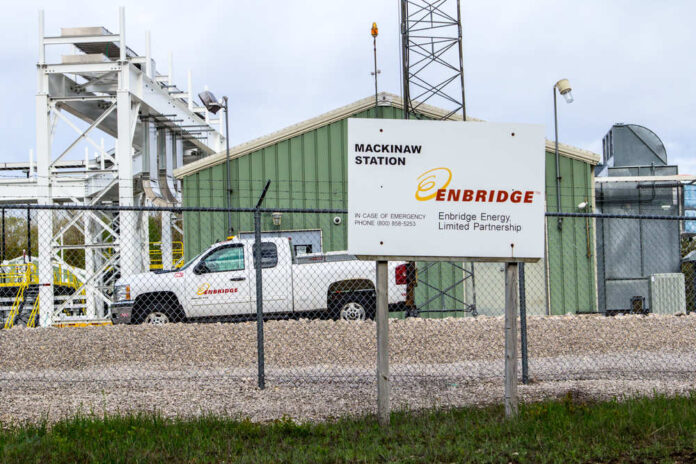
Michigan is embroiled in a showdown with Canada as Democratic Gov. Gretchen Whitmer tries to close a pipeline that runs from north of the border through her state.
The Enbridge Line 5 pipeline carries oil and natural gas from Superior, Wisconsin, through Michigan and two of the Great Lakes and on to Sarnia, Canada. The Democratic governor’s actions created an international firestorm as legal battles intensified.
Despite the state order issued in 2020 to close the pipeline, Enbridge continues its daily operations which it said generate up to $2 million daily. Whitmer cited an “unreasonable risk” to the Great Lakes in issuing her demand.
Permits to enable Enbridge to build a tunnel to increase the safety of the infrastructure have been pending in Michigan’s state agencies since 2020.
The case is now in federal court, and Canada’s government gave its backing to the energy company. Officials cite the 1977 Transit Pipelines Treaty that permits crude oil to be transported between the U.S. and Canada.
Why Michigan is trying to shut down Canada's Enbridge Line 5 pipeline https://t.co/NXF4Osfh9u
— BBC News (World) (@BBCWorld) January 15, 2023
Michigan argued that trucks and railways are likely a better choice for moving the oil and natural gas, but its northern neighbor disagreed.
Canadian Natural Resources Minister Jonathan Wilkinson called these alternatives “less safe, less efficient, and higher emitting.”
The pipeline connecting Wisconsin and Canada by way of Michigan and two of the world’s largest lakes is a major environmental threat, according to critics.
They cite a 2018 accident in which a shipping freighter’s anchor struck and damaged the pipeline in the sensitive Straits of Mackinac. This waterway connects Lake Michigan and Lake Huron.
At that point, then-Michigan Gov. Rick Snyder reached an agreement with Enbridge for a $500 million project to encase the pipeline with a tunnel bored through rock under the lakebed.
That project, however, ran into fierce resistance when Whitmer became governor. She was a vocal critic of the 70-year-old pipeline and ordered the company to end operations in the Straits. That effectively would have capped the flow of oil and natural gas, but Enbridge ignored the edict.
Now the standoff is in U.S. federal court.
The Canadian provinces of Ontario and Quebec rely on the pipeline for the majority of their crude oil and are fighting mightily to keep their supplies flowing. The legal battle promises to be both long and costly as environmentalists wage war with Enbridge and the Canadian government.





























